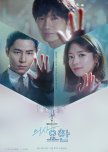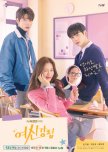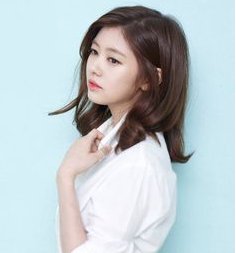
50+ episode makjang distilled into 16 episode chaos
Makjang is ridiculous and over-the-top drama (which generally rates poorly on MDL), and Graceful Family ticks all the makjang qualifications: plot twist(s) in every episode, cocktail of comedy and drama, absurd cast of characters, and more. It makes for an entertaining watch, but I am grateful that this drama wraps up in 16 episodes. The ridiculousness makes it difficult to connect with its characters and to elevate it to endearing versus entertaining.Story:
Graceful Family covers an incredible amount of plotlines over the course of 16 episodes (even covering a flashback at the beginning of each episode). The drawback is that most of these plotlines just happen for the purposes of moving the story forward. Then, the characters have to react accordingly, but even their reactions seem inconsistent at times. Roller coaster is a perfect analogy as the viewers are strapped in to follow whatever rail the writers have created for the story.
Acting:
I am a big Im Soo-Hyang fan because of her main role in My ID is Gangnam Beauty. Her character in Graceful Family is a stark contrast from Gangnam Beauty. The one similarity is the character’s belief in herself. That confidence/conviction is masked in Gangnam Beauty whereas it is in the forefront of her character in Graceful Family. The execution of the character in Graceful Family is simple, but that does not take away from Im Soo-Hyang’s great performance.
Same can be said for the other main leads and supporting cast. For a cable network drama, the entire cast of Graceful Family is experienced and talented. Bae Jong-Ok stands out as the villain character (plus I recommend Live to see more of her!). The major loss of points in this area is that the writing really limits the actors’ performances. Every character is put into impossible situations and directed to overreact, fully embracing the makjang moniker. Still, the overall acting is what kept me tuning in week by week.
Music:
Even the music is melodramatic in Graceful Family. Any hint of plot tension is accompanied by dramatic music, and the OST heavily leans in that direction. It follows the kdrama music formula that has proven successful over the years. MBN carefully crafted Grace Family to leverage all the key points that we expect of Korean Dramas.
Rewatch Value:
As entertaining as Graceful Family can be, it is best enjoyed in the moment because dwelling any longer highlights its various flaws. The cast is the highlight of the drama, and I attribute its rating success to them. Still, I would rather rewatch two dramas that I mentioned earlier instead of Graceful Family (My ID is Gangnam Beauty + Live). Given the solid amount of drama offerings in 2019, missing Graceful Family is not a loss for most drama watchers.
Vond je deze recentie nuttig?

Black Dog falters after its promising opening
I warily watched Black Dog. On one hand, I am a fan of Seo Hyun-Jin, and tvN is a reputable network, but the show is led by a relatively rookie writer & director. The school setting is niche but not novel. The introduction is mere inches from melodrama. Yet, Black Dog starts with a surprisingly open and honest discussion of the main lead’s struggles. Unlike Sky Castle’s overt drama, Black Dog takes a more realistic and understated portrayal of life at Daechi High School.Black Dog progresses with this steady approach until the last quarter. The story seems to peter out as major plotlines are resolved (or dropped) because the balance of the plot is thrown off. New plotlines emerge that do not have the same level of subtlety, and it breaks the sublime immersion created until that point.
Story:
Honestly, I almost passed on Black Dog due to its seemingly bland premise. I wrote it off as a bad Sky Castle impression. Even episode 1 left me with a raised eyebrow until the big “reveal”. Then, Black Dog shows its strength, clear and emotional storytelling. The progression and growth of the main lead is felt with each episode, and it must have been too fast for the writer. The story basically begins a second season (I will not elaborate for fear of spoilers). Unfortunately, Black Dog ends with a “not-as-good Season 2 disappointment” that viewers are all too familiar with.
Acting:
I am 100% biased with Seo Hyun-Jin. Although I favor her roles in romcoms, The Beauty Inside and Another Miss Oh, she demonstrated her range with the first season of Romantic Doctor, Teacher Kim. Black Dog leans towards the latter, and Seo Hyun-Jin is responsible for delivering emotions rather than laughs. Furthermore, she does it via the subdued character with conviction, Go Ha Neul.
Shoutout to Lee Chang-Hoon (actually in Sky Castle). He owns a more mature role in Black Dog, versus his roles in One Spring Night and Something in the Rain. Ye Soo-Jung also makes me turn my head after her 180 transformation from Search: WWW. Overall, I am a fan of how the entire cast expands their acting range with Black Dog.
Music:
The backing tracks of Black Dog are a bit vanilla. It makes sense to not overshadow the many subtle and emotional scenes with overly dramatic songs. Though the music pairs nicely with the drama, it does not have impact on its own.
Rewatch Value:
I went from skipping Black Dog to being surprisingly optimistic. Again, it’s disappointing to know Black Dog fails to deliver to my renewed optimism. It may be a more enjoyable watch to less seasoned drama viewers, hopefully, but know that kdramas have much to offer, beyond Black Dog. I look forward to the growth of Black Dog’s director and screenwriter due to the promising signs in Black Dog.
Vond je deze recentie nuttig?

When the Camellia Blooms
4 mensen vonden deze beoordeling nuttig
Definitely not another Gong Hyo-jin Rom-Com
Comedy is not what will be remembered about When the Camellia Blooms. Although that seems obvious based on the plot synopsis (single mother, serial killer, etc.), I expected something similar to Gong Hyo-jin’s previous works, and I was glad that WtCB was not. I am not a huge fan of GHJ, especially her comedic timing, and seeing her in this drama is a pleasant surprise. Funny moments still dot this drama, but its main draws are the looming mystery thriller and its emotional punches.With a veteran cast & crew and solid production quality, the drama executes its plot cleanly, mostly. The beginning exposition is a little messy with the introduction of the mystery plotline and the romance plotline, but WtCB finds its footing. However, I find the messy beginning more captivating than the polished execution of the middle and ending. The tension in the drama dissipates a little too quickly given its long buildup, and I am left wanting more.
Story:
There are 2 main stories in When the Camellia Blooms, the mystery and the “drama”, and the romance and comedy both take a back seat. The 20-episode format gives the mystery and drama ample time to develop, but due to their poor integration, it results in an uneven pace. Throughout it all, romance and comedy still peak their heads, like a familiar, friendly reminder.
The characters in the drama are much better written than the plot, and they remain relatable even as a serial killer lurks in their town. In particular, the development of minor characters stands out, especially Noh Gyu Tae and Jessica. The way these two characters are made endearing throughout WtCB shows its excellent character drama.
Acting:
Furthermore, Gong Hyo-Jin has said in an interview that Dong Baek is a character who she could not pass on to another actress. The role really challenges GHJ to portray a vulnerable person putting herself out there. It relies less on comedic timing and more on emotional delivery, and GHJ shows she does not need comedy to create relatable characters.
The supporting cast is also stellar, and the trio of GHJ with the 2 male leads bring all the different plotlines together. Kang Ha-Neul excels as he bounces from the different plotlines, all while bringing his comedy chops (even while solving a murder!). And as mentioned earlier, even the minor characters get their moments to shine throughout, and the interaction between all the characters had me tuning in week by week.
Music:
The music also consistently delivers week by week. It trends towards the typical kballad genre but employs a group of talented singers. I look forward to giving the OST and soundtrack a re-listen. Shoutout to Punch who has killed it with drama OSTs in 2019 (plus she has a popular OST in another GHJ drama, “It's Okay, That’s Love”). And, I will never say no to more songs by Heize.
Rewatch Value:
As much as I love the lesser known hits in kdramaland, credit is due to the major networks and their products. They bring in starpower and have the capacity to cover all the facets of drama making. It results in 10+% ratings rarely achieved by the smaller cable networks, but it can be difficult to determine whether that was because of quality or mass-marketing/appeal. As far as WtCB is concerned, it is an enjoyable watch and better than most other 2019 major network productions (like “Angel’s Last Mission: Love”).
Vond je deze recentie nuttig?

Convenience Store Saet Byul
10 mensen vonden deze beoordeling nuttig
Too many reasons to skip this drama
One can only put up with so much for what is ultimately a typical romcom. There are obvious challenges to adapting an “adult” webtoon for a general audience: crude humor, offensive stereotypes, and questionable objectification of characters. Is there an audience for this type of material? Yes, but it is most likely not you.Let’s make it clear(er). Fart jokes and body gags - check. Uncomfortable and unnecessary depiction of “Jamaican” culture - check. Love line between a minor and an adult - check. Backstreet Rookies is not worth the mental gymnastics needed to overlook its glaring flaws.
Story:
After peeling away Backstreet Rookie’s controversial gimmicks, a very familiar plotline remains, i.e. hardworking leads that suffer from a series of misunderstandings. Even the “female chases male” tag is easy to find elsewhere. Characters are also black-or-white and never break their mold. So, the drama relies on various gimmicks to push the narrative forward. While some are wholesome or funny, others are uncomfortable or offensive and cringe inducing at best.
Acting:
The cast is definitely the lone bright spot in Backstreet Rookies. Ji Chang Wook is well established, and Kim Yoo Jung is quickly establishing her young adult career. Some viewers criticized the age difference between the two, and all I will add is that Kim Yoo Jung is at least of adult age (compared to her age while shooting Love in the Moonlight in 2016). Supporting cast is stellar with Kim Sun Young, a staple highlight in kdrama land. Everyone outperformed their simple and flat character designs.
Music:
Backstreet Rookie’s OST fits well with its story and the lyrics are even used as lines throughout. The drama uses a more modern sound and often relies on input from various kpop artists. Rothy’s OST contributions are always solid. Still, the music is rarely compelling enough to make a drama watch worthy in itself.
Rewatch Value:
In the end, I am surprised to find myself finishing the drama. It was difficult to get through my usual 4-episode trial, and there were later episodes (scenes) which made me want to drop it. Save yourself the headache and indulge in the many other kdramas available. Although it has its own flaws, the recent drama, Itaewon Class, is a better feel-good drama about hard working under dogs.
Vond je deze recentie nuttig?

An engaging plot (twist) driven drama
Plot twists and cliffhangers are front and center of Hot Stove League (Stove League). Sherlock-esque, the Main Lead (Baek Seung Soo) solves each turn, mostly on his own, with the big reveal happening after the resolution. Just through pure storytelling, the drama delivers quite an emotional punch, which is surprising given its subdued character development. Do not let Stove League go under your radar with its compelling and heartwarming message.Story:
The realism and relatability of the niche topic of off-season baseball highlights the main strength of Stove League. No challenge seems ridiculous, though some resolutions are a tiny bit far fetched. There is a real feeling of distress with each downturn and a huge sigh of relief with each problem solved. It makes the drama easy to look forward to on a weekly basis.
The only drawback is that so much time is spent on presenting and solving each issue, which leaves little time for other types of character development. Sherlock is Sherlock in each mystery, and Baek Seung Soo remains true to his style throughout the show. The lack of character growth is worse for the female lead, Lee Se Young, who mostly gets dragged through BSS’s antics. Luckily, the “main” side character of each plot arc gets significant development in comparison. This is doubly true for the antagonist, Kwon Kyung Min.
Acting:
Tight storytelling makes it easier for the actors to play their role while weak character developments hurts their ability to shine. Baek Seung Soo’s past frequently appears on screen, and the actor Nam Goong-Min admirably plays his past-self well in contrast to his present character. Unfortunately, Park Eun-Bin’s character does not get enough opportunities to perform. Even supporting characters get more character development as their arcs are completed over the course of 1-3 episodes. In that sense, the supporting cast did a great job of acting given their window to shine. Oh Jung-Se especially left a good impression by the conclusion of the drama.
Music:
At first, the music of Stove League seems bland, but it grows on viewers with each re-listen. The musical cast leans more on Korean rock than kpop or kballad. The change is refreshing. It somehow blends effortlessly with the plot and premise of the Stove League, akin to the fight songs or victory songs of real-life sports teams.
Rewatch Value:
Stove League, as mentioned, is a solid watch, especially as it aired, but it does lose much of its shine when the outcomes are known. On the other hand, the feel good nature of the overall message cannot be overstated. So, I will recommend another hardworking drama, Chief Kim, which shares the same male lead and a similar character vibe (i.e. talented and misunderstood) as I fondly remember Hot Stove League.
Vond je deze recentie nuttig?

Love Affairs in the Afternoon
4 mensen vonden deze beoordeling nuttig
This drama rings hollow through its messy and uncomfortable premise.
Starting from promotional materials, the creators are clear about the direction of Love Affairs in the Afternoon; Affairs are going to disrupt the lives and relationships of each character, and we’ll be there to witness it all. To keep this spoiler-free, I can’t tell you if the drama ends with a sweet happy ending or sweet justice p*rn. I can say that it is uncomfortable, infuriating at points, and barely enticing enough for me to watch all 16 episodes. My recommendation is to judge this drama by its cover (and premise), and if you don’t think you’ll enjoy it, don’t bother watching.Story:
I generally avoid remakes, but a dearth of romance dramas that started in July left me watching LAITA. I did try to drop it at some point after the August drama debuts, but I held on like some completionist maniac. Back to the point - I did not watch the original Japanese drama.
My biggest question throughout was whether the original show was so clear cut about what will happen and how characters will react. The characters in LAITA are surprisingly shallow, and their predictable behaviors took away from the entwined premise. There are twists and turns, but lean back in your chair and think about what happened for three minutes. Then, the story looks plain as vanilla (no offence to vanilla - a true classic flavor).
Acting:
The acting is almost the perfect example of hit and miss acting. I’ll start with the hits. The actors behind the most frustrating characters leave the most memorable memories, making me want to toss my laptop at certain scenes. Shout out to Kim Mi-kyung who went from goofy mother in Her Private Life to the most insufferable mother-in-law in LAITA. The female leads also performed admirably. Park Ha-sun nails that uncomfortable, awkward look throughout the drama, and Ye Ji-won portrays strength through her weakness, though she does suffer from typecasting.
I’ll mention two misses, the first big and the second small. First, the chemistry between the main leads, especially Lee Sang-yeob and Park Ha-sun, is lacking. It may have been enough for a fluffy romcom, but the chemistry is evidently lacking in a drama with supposed gravity, making it hard to relate to their situation. Second, two of the “kids” in the drama are played by a 27 year old and a 14 year old. Shin Won-ho (27) has a fair amount of lines for a support role, and I understand why it may have been difficult to cast an actual teenager. Still, I laughed seeing a grown man acting like a child and interacting with Shin Soo-yun’s (14) character, just another small example of how LAITA interrupts viewer immersion.
Music:
The music, thankfully, was not so forthcoming like the plot and acting. Although, it would be funny to hear a song about kissing a married man, ala I saw Mommy kissing Santa Claus except Santa is actually not the dad… LAITA only tiptoes the makjang line and the OST does a passing job of setting the scene and conveying emotion (minus the one “dramatic” soundtrack that becomes borderline bothersome by the end).
Rewatch Value:
The one thing that bumps up this rewatch value is that this is a Japanese remake. Does a vague interest in watching the original count towards the rewatch value of LAITA? I think it counts, so don’t let the score lead you to believe I’ll be watching the Korean version twice.
Vond je deze recentie nuttig?

Near flawless execution of the age-old Korean drama formula
I was hesitant to watch Doctor John for two main reasons: the medical genre and the actor Ji Sung, but the positive online comments and strong viewership ratings made me reconsider. I am delighted to report that this drama is well-worth a watch. Doctor John tastefully navigates the familiar kdrama plot line and accurately nails each and every emotional delivery, leaving viewers connecting and empathizing just like our main leads.Story:
Although the pace and structure of the story follows the familiar formula, there is just enough flavor and twist to keep viewers engaged throughout the plot. Doctor John also balances this with a healthy dose of foreshadowing while not making the plot boring and obvious. I’m not very familiar with the Screenwriter (Kim Jiwoon), but the director (Jo Soowon) has an impressive resume of tightly directed stories.
This brings me to my first hesitation with Doctor John, the hospital setting. My favorite “medical” drama is Romantic Doctor, Teacher Kim, and that drama relies less on medical complications than Doctor John. The cases in Doctor John are more severe and less believable to me, but when I do buy into the story, the cases are surprising charming. On top of this, Doctor John does not lack in connecting the patient cases to the leads’ lives, which is the strength of RDTK. Though it requires some imagination and suspension of disbelief, the medical plot of Doctor John is engaging, contrary to my expectations.
The other major component of the story is the character designs. On the surface, the designs pretty much cover all the different types of characters we expect in kdrama, and that means that viewers can relate to and root for many characters for varying reasons. I think that’s a key of why kdrama is popular with global audiences, so I can’t knock Doctor John for sticking to stereotypical character designs.
Overall, Doctor John encapsulates the things we love about Korean dramas, suspenseful cliffhangers, loveable characters, and awkward product placement (PPL). After Doctor John, I am less hesitant to watch another Korean medical drama.
Acting:
My second major hesitation for not watching this drama is Ji Sung, and that’s because of how poorly I rated him in Kill Me, Heal Me. I cannot agree with the prevailing sentiment on KMHM. However, Ji Sung outperforms my misconception and cleanly executed his role, and I can now confidently use Ji Sung as an example of an actor that meets “Main Role” expectations, especially amidst the crop of rookie actors of the past few years.
I want to clear up a small point about the “Strong Female Lead” tag; the female lead actually cries a lot. She cries because her strength is empathy (react how you will). I just wish that she could convey her “empathy” in more ways than crying. In a similar vein, many of the supporting actors only play their stereotypical characters when I would have liked to see more risk-taking acting. The caveat is that the director has shown a tendency to do this to side characters based on his past works.
Still, I found the acting in Doctor John above expectations and look forward to all the actors’ next works. Specifically, Ji Sung’s performance convinced me to go back and watch Familiar Wife, another drama I put off due to his involvement.
Music:
2019 has been an amazing year for drama OSTs, but the music of Doctor John rates average at best. In some ways, the music is an accurate representation of the drama as a whole. There is a well-planned mix of music that is carefully crafted to fit various scenes. The music always adds and does not detract from what is happening on screen. However, it does not stand out on its own and leaves no lasting impact when the scene ends.
Rewatch Value:
The only drawback to such a well executed drama is that it executed the standard kdrama formula, which is relatively safe. It is as if this drama was conceived from a focus group of veteran drama watchers listing the things that they enjoy, and the result is a mashup of ideas that are all a little too familiar. I’m sure more dramas will continue to attempt the same, and I will continue to watch them, instead of circling back and rewatching Doctor John. I can only imagine how amazing this drama could have been had it executed a more risky and daring concept.
Vond je deze recentie nuttig?

The Gentleman and the Lady
1 mensen vonden deze beoordeling nuttig
The latest installment of KBS2’s Sat/Sun drama may be the beginning of the end
The ratings say otherwise, but Young Lady and Gentleman does not quite meet the expectations of KBS2 Sat-Sun dramas. The format itself may be at a crossroads with the growth of streaming, the rise of mini-”mini-series”, and the changing drama audience.Story:
The commitment to fifty (two) episodes is a double-edged sword. Time to explore characters. Too much time to fill. Safety of a long contract versus the risk of trying something new. The formula is a multi-generational family romcom with truckloads of misunderstanding. Among its peers, Young Lady and Gentleman takes an unusually out-of-touch approach to romcom, and feelings of frustration exceed any satisfaction gained.
Acting:
The cast is surprisingly small for such a large drama. The plot is also very “main”-centric and does not give as much opportunity to others. For example, it is hard to call Kang Eun Tak’s role as a “main role”. Thus, the acting falls on the shoulders of the two main leads, Ji Hyun Woo and Lee Se Hee. The plot did them no favors, but their acting and chemistry more often breaks immersion than add to it. The small supporting cast shines brighter in their limited roles.
Music:
The standout here is the OST sung by Lim Young-woong, who received mainstream attention following his win on Mr. Trot. The rest of the OSTs are well produced but fail to be more than another track on a long list of Korean OSTs.
Rewatch Value:
With a 52 episode count, it is difficult to justify a rewatch. The last drama in this timeslot that I watched is Homemade Love Story, which is a more interesting watch. My 100% biased favorite from the timeslot is My Father Is Strange. There is also the biggest hit, My Only One. Even the next drama, It’s Beautiful Now, shows more promise with Yoon Shi Yoon heading the star studded cast.
Regardless, the days of fifty hour weekend dramas may be numbered, and I predict a shift away from this long format. Current trends indicate dramas becoming shorter, less than 12 episodes! Streaming giants are quickly moving into the KDrama sphere. Even if this timeslot remains a staple to local Korean audiences, the producers and KBS must feel the pressure to innovate, both in the format as well as the formula.
Vond je deze recentie nuttig?

Not like other high school dramas… Sike
And another webtoon adaptation. True Beauty bears many similarities with the slew of new romcom entries in kdramaland. As much as I love romcoms, I stay away from “high school” backdrops because I find the premise constraining. Its focus on firsts (e.g. first love, first kiss, etc.) leads to predictability. True Beauty benefits from a wealth of original material but still struggles to shine amongst numerous similar titles.Story:
Adaptations are a double-edged sword. The original must have been well-received to be adapted, and the adaptation will naturally be compared against it. Any changes are seen as significant risks. I have only briefly scanned a couple chapters of the True Beauty webtoon, and it is clear that the webtoon contains a ton of content distilled down to 16 episodes.
Without reading the original content, one senses the webtoon omissions through the shallow side characters in the drama adaptation. Relationships with side characters go from one stage to the next without sufficient scenes. Even the finale is rushed to reach an ending for the main leads. With such gaps, the drama feels surprisingly empty despite its quick pace.
Acting:
As if comparison to the webtoon is not enough, Cha Eun-Woo’s True Beauty character has the same feel as his character in Gangnam Beauty: cold but caring, cares what is inside more than outside. Can an actor be typecast this quickly? His acting in Gangnam Beauty exceeds the expectation for idols, and his performance in True Beauty is at least as strong. I have not seen his sageuk drama but look forward to him trying different roles in the future.
Moon Ga-Young is Moon Ga-Young, cementing herself as a pillar among kdrama actresses. Just look at any popular young actress list on MyDramaList. The entire drama revolves around these two, and their acting is the main draw that distinguishes the drama from the webtoon. Beautiful actress cosplays “ugly” girl is suspect, at best, but Moon Ga-Young’s overall performance is great (shifting body language from unconfident to confident). The young actors’ ability to carry this drama highlight the bright future ahead of them.
Music:
Idol concepts weave itself throughout the drama and the music. The OST is even being repackaged like a kpop album with photocards and merchandise. Unsure whether this is common for drama OSTs, but the OST artists fits the image. Solos from idol groups like GFriend and SF9, Chani himself. Cha Eun-Woo and Hwang In-Yeop also contribute. Final shoutout to Car, the Garden ~ Happy Ending.
Rewatch Value:
I realize MDL lists two additional “main roles” which I mostly passed over. Park Yoo-Na’s character is the most shortchanged from the adaptation (my guess) and is the only reason I may try to read the webtoon. The rewatch value of the drama is low, and, ironically, some of the memorable scenes were actually the hilarious Extraordinary You cameos. Definitely give Extraordinary You and Gangnam Beauty a try before, or after, True Beauty.
Vond je deze recentie nuttig?






















